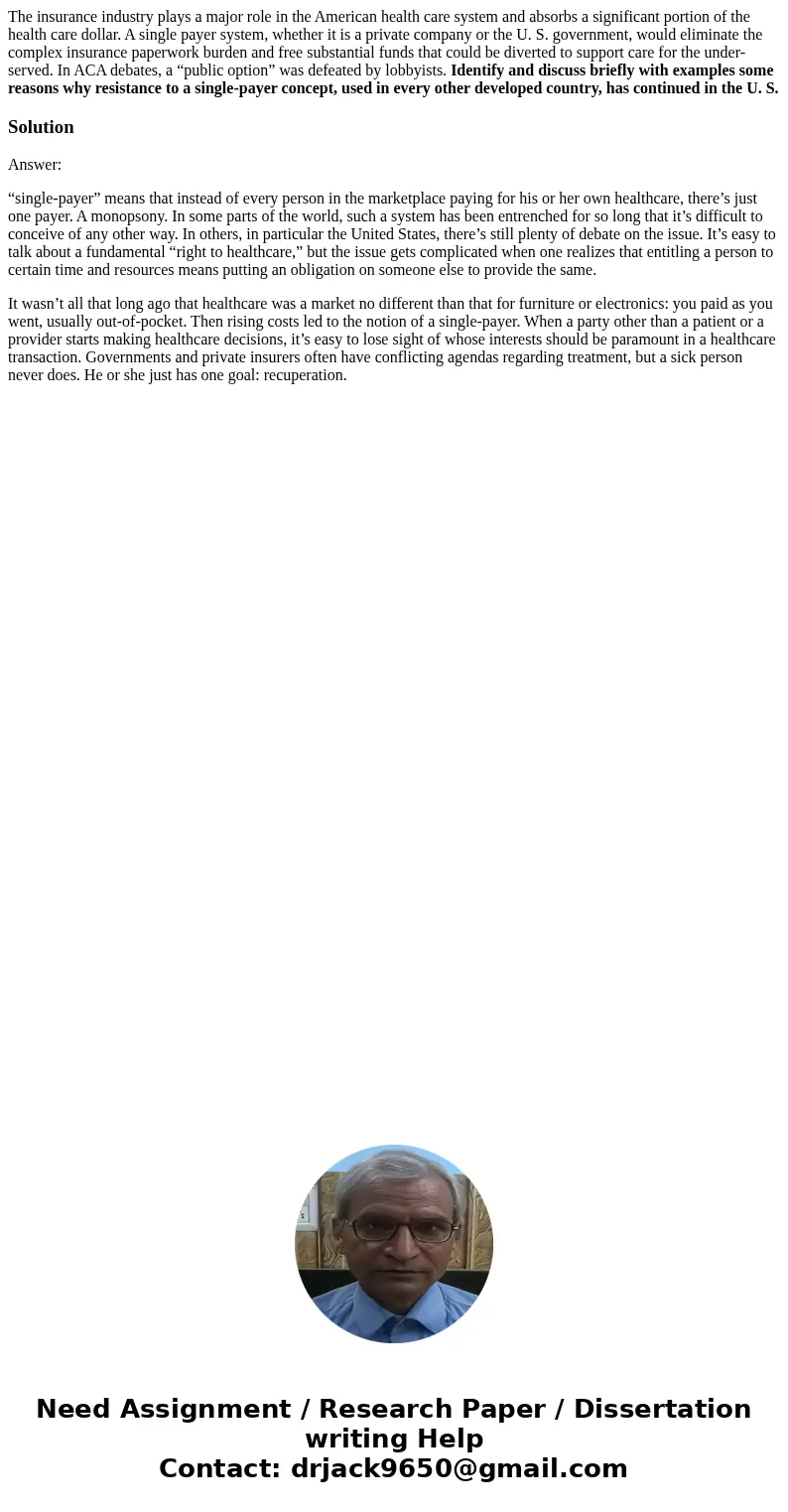The insurance industry plays a major role in the American he
The insurance industry plays a major role in the American health care system and absorbs a significant portion of the health care dollar. A single payer system, whether it is a private company or the U. S. government, would eliminate the complex insurance paperwork burden and free substantial funds that could be diverted to support care for the under-served. In ACA debates, a “public option” was defeated by lobbyists. Identify and discuss briefly with examples some reasons why resistance to a single-payer concept, used in every other developed country, has continued in the U. S.
Solution
Answer:
“single-payer” means that instead of every person in the marketplace paying for his or her own healthcare, there’s just one payer. A monopsony. In some parts of the world, such a system has been entrenched for so long that it’s difficult to conceive of any other way. In others, in particular the United States, there’s still plenty of debate on the issue. It’s easy to talk about a fundamental “right to healthcare,” but the issue gets complicated when one realizes that entitling a person to certain time and resources means putting an obligation on someone else to provide the same.
It wasn’t all that long ago that healthcare was a market no different than that for furniture or electronics: you paid as you went, usually out-of-pocket. Then rising costs led to the notion of a single-payer. When a party other than a patient or a provider starts making healthcare decisions, it’s easy to lose sight of whose interests should be paramount in a healthcare transaction. Governments and private insurers often have conflicting agendas regarding treatment, but a sick person never does. He or she just has one goal: recuperation.

 Homework Sourse
Homework Sourse